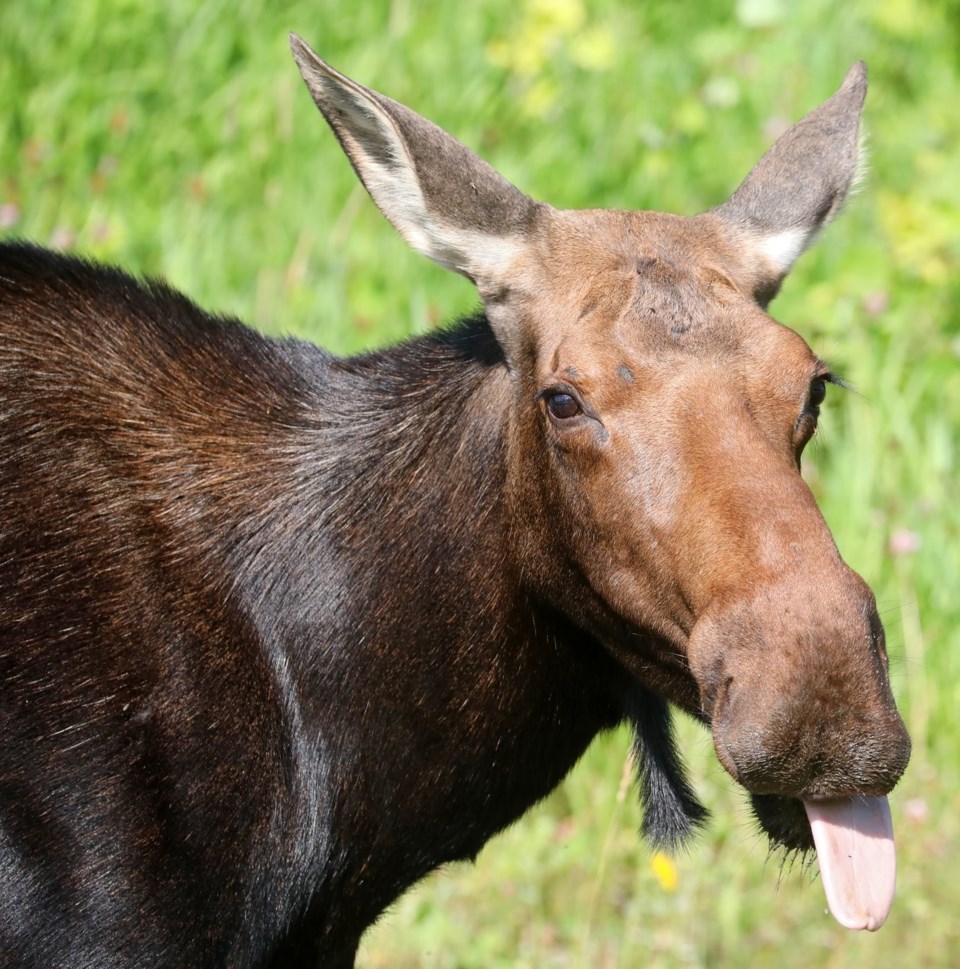The province has engaged in a two-pronged battle with hunters — one involving night hunting and one involving moose-closure areas and Indigenous harvesting rights.
On the night-hunting front, conservation officers arrested two men from Brandon and seized their property in the early morning hours of Oct. 4.
“Conservation officers, with support from an aerial patrol, saw a group of hunters using a spotlight to hunt from a vehicle northeast of Spruce Woods Provincial Park,” the province stated in a news release.
“A 2015 Toyota Tundra truck, as well as a rifle, a spotlight, various other hunting equipment and a wild boar carcass were seized.”
Since Oct. 10 — when the Wildlife Amendment Act (Safe Hunting and Shared Management) took effect — conservation officers have conducted patrols to enforce it, the province stated. Twenty-two people are facing charges or appearance notices for serious wildlife offences, warnings were issued to 13 people for night hunting without a permit or for hunting in moose closures, and four people face charges for possessing illegally taken wildlife.
The province also seized six vehicles and eight firearms, while total restitution orders amount to $6,500.
The above was achieved with the help of aerial surveillance, thermal imaging and a K9 unit.
Leah LaPlante, vice-president of the Southwest Region for the Manitoba Metis Federation (MMF), as well as the federation’s minister of natural resources, said they went ahead with the lottery for 24 tags for bull moose. Those tags were for harvesting parties of four, and one stipulation was that when a moose was successfully harvested, the hunt captain would report back.
So far, none have reported back, LaPlante said.
“We haven’t heard from any of the teams, yet. Whether they were successful, whether they’ve gone out, whether they’ve been charged,” she said.
“Some of them may have decided not to go, because the Manitoba government didn’t really keep it a secret they were going to be doubling down and going hard.”
LaPlante said the question for her, as minister, was how many years.
“We agreed (to moose closures) in 2011, and every year we got a letter saying they are not bounding back. And, I said, if we just keep accepting their report, we won’t ever harvest. A lot of our elders will pass away without ever having moose meat again,” she said.
“The only way we can get these guys to the table is to do this.”
The federation does not support night hunting.
The Assembly of Manitoba Chiefs (AMC) lobbed back at the province with similar messages on Thursday.
“In the past, the AMC has co-ordinated First Nations hunting parties on ‘moose closures’ as a protest against unfounded and unscientific provincial justification for limiting moose hunting within First Nations territories,” the AMC stated.
While the province stated in its release that it engaged in extensive Crown-Indigenous consultations that contributed to the development of the legislation, the AMC counters that meaningful consultation did not occur to work out the legislative amendments. MMF president David Chartrand has previously made that same statement.
“We will continue to assert and exercise our treaty right to hunt in spite of unjust and unfounded provincial regulations and amendments on moose closures and the proposed limitations of the fall moose-hunting season,” stated AMC Grand Chief Arlen Dumas.
The province implemented a permit system to allow opportunities for rights-based hunting on some Crown land, and has different requirements for northern and southern Manitoba.
But the AMC said the amendments are “further interference, further infringement on treaty rights and further constitute a denial of the food sovereignty that has long sustained First Nations.”
Dumas further stated Manitoba chiefs would not tolerate “this provincial overreach of jurisdiction, but we, as always, remain open to meaningful Crown-First Nations consultation to ensure fairness and the sustainability of our shared wildlife resources.”
Referring to the loss of bison and other species, the assembly stated the amendments also have the potential to expand and make more room for recreational settlers — sport hunters, outfitters, private land owners and other interested third parties to harvest big game on First Nations’ treaty and traditional territory.
The bison slaughter by Europeans — which led to near-extinction during the 19th century — is well documented.
Dumas said respectful hunting has sustained Indigenous Peoples for eons without an impact on moose and wildlife populations.
“But settler interference, including the slaughter of the bison in the mid-1800s, has dramatically affected our ability to sustain our nations through respectful and sustainable hunting and harvesting practices,” Dumas said.
“First Nations are always mindful of the devastation and loss of the bison and other species and the effect it has had on our First Nations. Now, we face further interference with the current provincial government in the form of amendments to the Wildlife Act that have been proclaimed without any meaningful consultations with our affected First Nations rights holders and without any justification other than protecting settler recreational interests.”
The AMC stated it stands with its member First Nations, and all First Nations, in supporting their citizens in exercising their Aboriginal and treaty right to hunt across their traditional territories.




